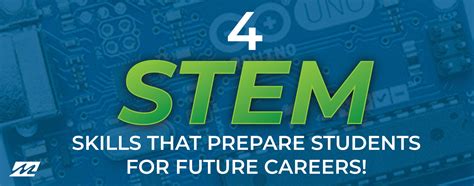Breaking News


Popular News


Discover the importance of science education, including engaging students, integrating technology, hands-on experiments, promoting critical thinking, and preparing for STEM careers.Science education is a crucial element in shaping the minds of the future generation. In today’s rapidly advancing world, it is more important than ever to engage students in science learning and equip them with the necessary skills to succeed in STEM careers. This blog post will explore the significance of science education in today’s world, focusing on key areas such as engaging students in science learning, integrating technology in science education, conducting hands-on experiments for effective learning, promoting critical thinking skills in science, and preparing students for STEM careers. By delving into these subheadings, we will uncover the numerous benefits of a strong foundation in science education and its impact on students’ future success. Whether it’s through interactive learning experiences or the development of critical thinking skills, science education plays a vital role in preparing the next generation for the challenges and opportunities of the modern world.
Contents

One of the most important aspects of science education is engaging students in the learning process. It is essential to create an environment where students are actively involved in the exploration and discovery of scientific concepts. This can be achieved through hands-on experiments, interactive activities, and real-life applications of scientific principles.
Integrating technology into science education is also crucial for engaging students. With the use of simulations, virtual labs, and multimedia resources, students can have a more immersive and interactive learning experience. This not only helps them understand complex scientific concepts better but also makes learning more enjoyable and engaging.
Implementing project-based learning and inquiry-based approaches can further promote critical thinking skills in students. Encouraging them to ask questions, conduct research, and solve real-world problems can spark their curiosity and foster a deeper understanding of scientific concepts. By actively engaging in the learning process, students are more likely to develop a passion for science and pursue further studies or careers in STEM fields.
In summary, engaging students in science learning is essential for creating a generation of scientifically literate individuals who are equipped with the critical thinking skills and knowledge needed to address the challenges of our rapidly advancing world.

Technology has become an integral part of education, including science education. In today’s world, it is essential to integrate technology into science education to enhance learning and engage students in a more interactive way.
Using technology such as interactive simulations, virtual reality, and online resources, students can visualize and understand complex scientific concepts more easily. This not only makes learning more interesting and fun but also provides a deeper understanding of the subject matter.
Furthermore, the integration of technology in science education enables students to conduct virtual experiments, analyze data, and collaborate with their peers, which fosters critical thinking and problem-solving skills. In addition, access to online databases and scientific journals allows students to stay updated with the latest developments in the field of science.
In summary, the integration of technology in science education is crucial in preparing students for the increasingly technology-driven world and in promoting a deeper understanding and appreciation for science.

Hands-on experiments are an essential component of science education as they allow students to actively engage in the learning process and gain a deeper understanding of scientific concepts. By conducting experiments, students are able to apply theoretical knowledge in a real-world context, which helps to enhance their critical thinking and problem-solving skills.
Additionally, hands-on experiments provide a more memorable learning experience for students compared to traditional lectures or textbook-based learning. When students actively participate in experiments, they are more likely to retain the information and develop a genuine interest in the subject, leading to long-term learning and retention of knowledge.
Incorporating hands-on experiments into the science curriculum also promotes collaboration and teamwork among students. Through group experiments, students learn to communicate effectively, share responsibilities, and provide support to their peers, which are valuable skills in both academic and professional settings.
| Benefits of Hands-On Experiments |
|---|
| Enhanced understanding of scientific concepts |
| Memorable learning experience |
| Promotion of teamwork and collaboration |

One of the key aspects of science education is the promotion of critical thinking skills in students. Critical thinking is the ability to analyze, evaluate, and synthesize information in order to make informed decisions and solve problems. In the context of science education, critical thinking is essential for students to understand complex scientific concepts and to develop the skills necessary for a career in STEM fields.
One effective way to promote critical thinking skills in science is to engage students in hands-on experiments. By allowing students to actively participate in experiments, they are able to observe, analyze, and draw conclusions from their own data. This not only enhances their understanding of scientific principles, but also encourages them to think critically about the outcomes of the experiments and to question the underlying concepts.
In addition to hands-on experiments, the integration of technology in science education can also play a significant role in promoting critical thinking skills. With access to simulations, computer models, and data analysis tools, students are able to explore complex scientific phenomena and engage in problem-solving activities that require critical thinking. By using technology as a tool for inquiry and exploration, students are able to develop a deeper understanding of scientific concepts and cultivate their critical thinking abilities.
Overall, promoting critical thinking skills in science education is crucial for preparing students to become analytical problem solvers and innovative thinkers in today’s fast-paced and rapidly changing world. By engaging students in hands-on experiments and integrating technology in science education, educators can foster a learning environment that encourages critical thinking and empowers students to become future leaders in STEM fields.

Science, technology, engineering, and mathematics (STEM) careers are becoming increasingly important in today’s world. With the rapid advancement of technology and the constant need for innovation, the demand for professionals in STEM fields is on the rise. It is crucial for educators to prepare students for these careers by providing them with a strong foundation in STEM subjects.
One effective way to prepare students for STEM careers is by integrating technology into science education. This can involve using interactive simulations, computer modeling, and other digital tools to help students understand complex scientific concepts. By incorporating technology into the classroom, students can develop important technical skills that will be valuable in their future careers.
Another important aspect of preparing students for STEM careers is to provide them with hands-on experiments and activities. These practical experiences allow students to apply theoretical knowledge in real-life situations, fostering a deeper understanding of scientific principles. Hands-on experiments also enhance critical thinking and problem-solving skills, which are essential in STEM professions.
Moreover, educators should focus on promoting critical thinking skills in science education. Encouraging students to question, analyze, and evaluate scientific concepts will help them develop the ability to think critically and creatively. These skills are crucial for success in STEM careers, as professionals in these fields are often required to solve complex problems and come up with innovative solutions.
| Key Strategies for Preparing Students for STEM Careers |
|---|
| Integration of technology in science education |
| Hands-on experiments for effective learning |
| Promoting critical thinking skills in science |
Overall, the importance of science education in preparing students for STEM careers cannot be overstated. By focusing on the integration of technology, hands-on experiments, and critical thinking skills, educators can empower students to pursue successful careers in STEM fields and contribute to the advancement of society.

Why is science education important in today’s world?
Science education is important because it helps students develop critical thinking and problem-solving skills, improves scientific literacy, and prepares them for careers in STEM fields, which are in high demand.
What are the benefits of science education for students?
The benefits of science education for students include improved understanding of the natural world, better decision-making skills, increased curiosity and creativity, and the ability to participate in civic discussions on scientific issues.
How can parents encourage their children to be interested in science?
Parents can encourage their children to be interested in science by providing access to educational resources, exposing them to real-world scientific experiences, and fostering a supportive and positive attitude towards science learning.
What challenges exist in promoting science education?
Challenges in promoting science education include limited access to resources, lack of qualified teachers, and the need to address disparities in science education across different communities and socioeconomic backgrounds.
What role does technology play in science education?
Technology plays a significant role in science education by providing interactive learning tools, access to online resources and research, and the ability to engage students in virtual experiments and simulations.
How does science education contribute to addressing global issues?
Science education contributes to addressing global issues by equipping students with the knowledge and skills to understand and tackle challenges such as climate change, public health crises, and resource sustainability.
What are the future prospects for science education?
The future prospects for science education include continued advancements in digital learning, integration of interdisciplinary topics, and a focus on preparing students for the rapidly evolving needs of the global workforce.